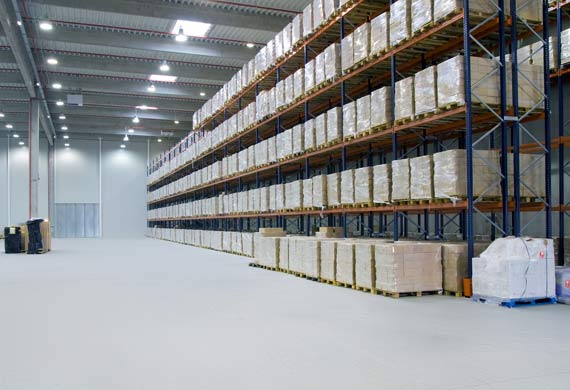
TAPA’s starts global campaign for warehouse security
SEP 15, 2015: The Transported Asset Protection Association (TAPA),which was formed in 1997 to tackle cargo thefts from the supply chain, is launching a global campaign to double the number of TAPA-certified warehouse facilities to over 2,000 in Europe, the Americas and Asia Pacific in the next three years. The campaign includes a new self-certification […]

SEP 15, 2015: The Transported Asset Protection Association (TAPA),which was formed in 1997 to tackle cargo thefts from the supply chain, is launching a global campaign to double the number of TAPA-certified warehouse facilities to over 2,000 in Europe, the Americas and Asia Pacific in the next three years. The campaign includes a new self-certification programme for TAPA’s entry level FSR Class ‘C’ and TSR Level ‘3’ Security Standards. TAPA is providing free training for members’ in-house auditors and once this is successfully completed they can undertake their own audits to demonstrate compliance with Class ‘C’ and Level ‘3’.
TAPA had developed Facility Security Requirements (FSR) and Trucking Security Requirements (TSR) to tackle the problem of cargo thefts and today can boast over 800 member companies including many of the world’s biggest manufacturers and logistics service providers as well as leading SME freight forwarding and transport operators, and other stakeholders.
Scott Dedic, chairman of TAPA Americas, said, “Companies join TAPA because they see how our Standards, training, networking and intelligence tools can further enhance their existing in-house security programmes. This campaign aims to help more of our members to gain FSR and TSR certification and to give our manufacturer members a bigger choice of suppliers to protect their products in the supply chain.”
The certification campaign also aims to build greater awareness for TAPA’s manufacturing members of the freight, logistics and transport companies that provide TAPA-certified facilities and trucking operations. This will include a new quarterly ‘Certification Bulletin’, profiles in the Association’s membership magazine and promotion through a new annual Directory of TAPA Certified Companies. TAPA is also looking to develop a new online tool that will enable manufacturers to ask if their transport and logistics service providers are TAPA certified.
Thorsten Neumann, chairman of TAPA EMEA (Europe, Middle East & Africa), added, “The TAPA members that are certified at the top levels of our Security Standards already understand the benefits because of the level and quality of business they get by being TAPA certified. However, the threat of cargo crime is increasing and that is why we need a bigger choice of services from companies that have demonstrated their commitment to a secure supply chain by adopting our Standards. Having recently certified our 1,000th global FSR facility, we see the need to double this figure over the next three years. In addition, the high volume of road-based cargo crime means there is a big window of opportunity for transport companies to increase their levels of business by completing our TSR certification. We have set an ambitious growth target but every new certification makes a supply chain that much safer for the companies using it.”
Tony Lugg, chairman of TAPA APAC (Asia Pacific), noted, “The incidents and losses captured by our IIS intelligence tool are for industry-wide cargo crimes and not only for TAPA members. Our research tells us that TAPA members are far less likely to be victims of cargo crime because of the measures they have introduced. Nonetheless, there is absolutely no room for complacency. Cargo crime is growing massively all over the world and remains significantly under-reported. Companies also need to understand that it is not just high value goods that are being targeted by organised criminal gangs but just about every kind of product that has a resale value on the black market.”

